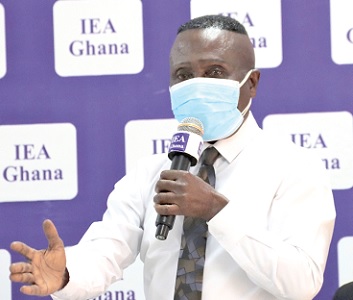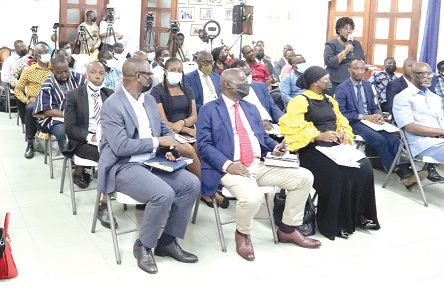
Use oil export windfall to reduce petrol prices - Dr Kwakye
The Director of Research at the Institute of Economic Affairs (IEA), Dr John Kwakye, has asked the government to use part of the windfall from the surge in crude oil prices on the international market to cushion Ghanaians at the pumps.
With prices of petroleum products being a major driver of inflation in the country, he said such a move would help control inflation and bring it to sustainable levels.
Advertisement
Dr Kwakye said this in a presentation on the theme: “Rethinking inflation management in Ghana in the wake of COVID-19 and Russia-Ukraine war.”
As a net exporter of oil, the government in the 2022 budget set the benchmark crude oil price for the year at $61.23 per barrel.
However, due to the Russia/Ukraine conflict, crude oil prices on the international market have risen to above $100 per barrel, which means the government will rake in more revenue in excess of what it projected to receive.
With Ghana also being an importer of finished petroleum products, the rise in crude oil prices has affected fuel prices at the pumps, which has led to inflation rising to 27.6 per cent in May 2022.
Dr Kwakye, an economic researcher, therefore, urged the government to use part of the increased revenue from the sale of crude oil to mitigate the pressure on citizens, occasioned by the expected increases in ex-pump price.
He also urged the government to use this opportunity to reduce and scrap some of the taxes on the importation of petroleum products, some of which were introduced at a time crude oil prices were low.
Collaboration
Dr Kwakye further called for a concerted effort by both the government and the Bank of Ghana (BoG) to finding more sustainable ways of dealing with inflation in the country.
Over the years, both parties worked independently to tackle economic challenges, however, a new approach was needed to properly cater for the supply and cost constraints, he said.

Even though the BoG used the inflation targeting (IT) approach to tackle inflation in the country, it focused on demand, with no provision for the supply side.
He then proposed a mixed approach, which would cater for both the macro and micro aspects of the economy.
Dr Kwakye also called on the government to provide subsidies for maize, rice and other essential items as a short-term measure to reduce prices of those goods.
The government should also "improve access and availability of public transport by expanding and subsidising intra-city and inter-city transport and resuscitating the railway system to serve as an alternative means of public transport," he said.
Amendment
A visiting scholar at the institute, Prof. Alexander Bilson Darku, said the inflation statistics and figures showed the brunt of inflation was felt more by the poor and underprivileged in society.
The central bank, he said, therefore had to focus on solutions geared at relieving those people from further worsening their standard of living.
Inflation targeting, though beneficial, needed to be revisited and amended to suit the peculiar conditions faced in the country for it to achieve the desired goals, Prof. Darku stated.
Value
The President of the Association of Ghana Industries (AGI), Dr Humphrey Ayim-Darke, contributing to the discussions, stressed the need for the country to improve upon the value chain of agricultural products in the country.
He stated that there was the need for industries to be revamped to process more produce grown in the country to improve upon the value of agricultural products.



